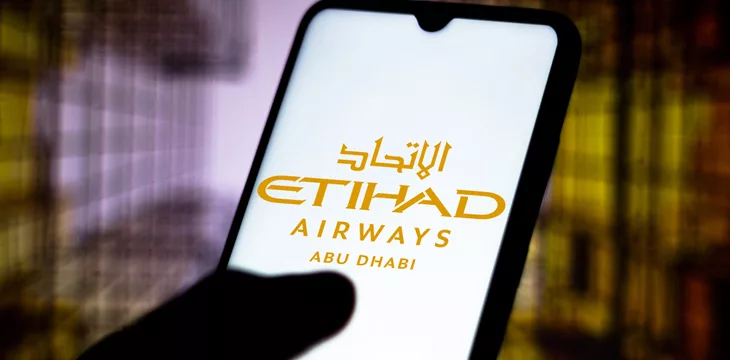|
Getting your Trinity Audio player ready...
|
Etihad Airways, the United Arab Emirates’ (UAE) national carrier, has announced an integration of artificial intelligence (AI) into its safety management system as an added precautionary layer for customers.
The airline disclosed that the AI integration could send its safety protocols to an “advanced level of sophistication.” Per the announcement, Etihad Airways confirmed that the move will feature the introduction of an AI-powered platform capable of automatically collecting and analyzing flight data.
The newly minted AI system is also expected to factor in maintenance data, training activities, and weather reports “to accelerate and refine existing safety measures.” While the information did not disclose full technical details, Etihad Airways’ new AI system leans on high-level AI tools and existing cloud platforms, including TF-IDF, Google (NASDAQ: GOOGL) BERT, and Microsoft (NASDAQ: MSFT) Azure.
“Safety is our top priority at Etihad Airways,” said Etihad Airways CEO Mohammad Al Bulooki. “Etihad is constantly exploring innovative ways to enhance our safety performance; we believe the integration of Artificial Intelligence is a significant leap forward in this direction and is set to be a game-changer in aviation.”
Etihad Airways’ push into AI for flight safety flows from a partnership with the Mohamed bin Zayed University of Artificial Intelligence (MBZUAI) to explore AI solutions to improve airline efficiency.
Apart from the AI-based flight safety system, the partnership with MBZUAI has yielded several benefits since signing of the Memorandum of Understanding (MoU) in July. Since then, the national carrier has equipped several employees with AI skills in flight operations, human resources, and revenue generation.
“We always explore innovative approaches and partner with leading educational institutions to empower the next generations with tangible experiences within the aviation industry,” said Mohamed Hasan Al Mansoori, a senior executive at Etihad Airways. “This AI-powered system is a testament to the success of our collaboration with MBZUAI and wider strategy to support Abu Dhabi’s vision.”
In 2019, Etihad Airways dabbled with blockchain to eliminate third parties in offering ancillary travel services to its customers, accentuating its embrace of innovative technology.
UAE throws its weight behind AI development
Keen to diversify its economy beyond oil and tourism, the UAE has increased its investment in Web3 and AI to emerge as the leading global hub for both sectors. Local authorities are offering subsidies for Web 3 and AI firms seeking licensing in the Gulf nation, with ChatGPT maker OpenAI already partnering with Dubai’s G42.
Aware of the expanding AI race, the UAE has reportedly invested millions of dollars for Nvidia’s semiconductors to build its advanced AI system without Western influence.
“The UAE has made a decision that it wants to own and control its own computational power and talent, have their own platforms, and not be dependent on the Chinese or the Americans,” according to one industry expert.
In order for artificial intelligence (AI) to work right within the law and thrive in the face of growing challenges, it needs to integrate an enterprise blockchain system that ensures data input quality and ownership—allowing it to keep data safe while also guaranteeing the immutability of data. Check out CoinGeek’s coverage on this emerging tech to learn more why Enterprise blockchain will be the backbone of AI.
Watch: Blockchain & AI unlock possibilities

 02-23-2026
02-23-2026 




